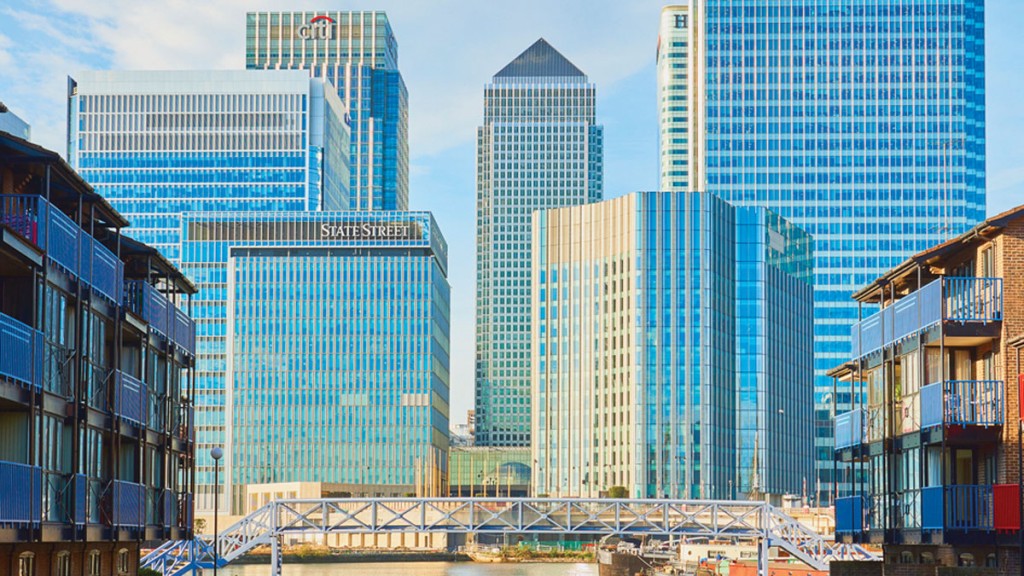
The City was largely in favour of remaining in the EU and was worried about the prospects for business if we voted Leave. What’s on the cards for the financiers? Simon Wilson reports.
Will Brexit harm finance?
Clearly that depends to some extent on the outcome of the exit negotiations, but many believe that some sort of shift in financial services from London to other European centres is inevitable. “The assumption that London’s financial and business service sector will be able to keep its access to the EU market for services and capital while restricting free movement of people is quite optimistic in our view,” said Gunnar Herm, UBS head of real estate research and strategy across Europe, in a research note.
“Brexit is a threat for London. Financial services companies may not rush through the door to relocate; however, should uncertainties with the UK’s future relationships with the EU continue for too long, companies may re-assess their options and execute in the interest of their stakeholders.”
What are the City’s specific fears?
One immediate, practical concern, is to get clarity from the UK government about the status of the tens of thousands of EU nationals working in the UK financial sector. An estimated 20%-30% of staff at the City’s big banks and asset managers are from the other 27 EU nations, and work here under EU freedom of movement rules. Another big question mark concerns trading in euro-denominated securities. The European Central Bank has already tried to pass laws forcing all clearing houses to be based on the continent.
Britain successfully overturned that following a four-year legal battle at the European Court of Justice – but it is widely assumed the EU (the French in particular) will now be determined to wrestle this lucrative and crucial trade out of UK hands. Whether it can do so, of course, is another matter. More broadly though, the City is mostly worried about whether its “passporting” rights – which mean a company licensed in one EU state can do business across the bloc – will be retained.
Will “passporting” survive?
A deal that preserves passporting is “imaginable”, says The Economist, though at the moment no non-member of the EU enjoys full rights. For example, Norway (to some, the most promising model for Britain) has unfettered access to the EU’s single market. But most of the EU’s post-crisis regulation has yet to be incorporated into its deal. Some hope that new regulations (known as Mifid II) will save the day, allowing non-EU countries to access the EU if their regulatory regimes are deemed “equivalent”.
This week, for example, the European Securities and Markets Authority (Europe’s financial watchdog) said that hedge funds from the US, Singapore and Hong Kong should be allowed to market themselves in Europe, on the basis of “equivalence”.
What’s the worst-case scenario?
Even if there were no deal, argues Dominic Elliott on Reuters Breakingviews, the fallout would be containable (perhaps involving the loss of around 10% of jobs in the UK financial sector, which employs around 750,000 people). An analysis conducted by Boston Consulting Group (BCG) found that with no passporting rights, investment banks’ annual operating costs could rise by 3% – due, for example, to the need to duplicate roles, or no longer being able to share costs between divisions.
Who would be worst affected?
The hardest hit, predicts Elliott, would be the US banks, which have especially heavy concentrations of their Europe, Middle East and Africa staff based in London. European banks, meanwhile, would need to set up separately capitalised subsidiaries both in continental Europe and in the UK, resulting in an estimated additional capital requirements of around €40bn, according to the same BCG study. That might sound prohibitive, but it still might be cheaper than the costs of upping sticks.
What’s more (argue the optimists) London’s financial clout is too big, its cluster of auxiliary trades and services (expertise in accountancy and law, for example) and its allure as a genuinely global city and cultural hub too strong, for big banks to jump ship altogether. On the other hand, it may well lose some business to rival centres.
Such as where?
Paris is certainly keen. Valerie Pecresse, head of the Paris regional government, wrote to 4,000 British executives the day after the referendum extolling the business virtues and “unparalleled quality of life” offered by her city. In practice, though, France’s high taxes, and uncertain political environment mean it’s never going to be the first choice for highly paid finance professionals. Frankfurt could be an attractive option, in particular for German, Swiss and US institutions, although one downside is Germany’s relatively inflexible labour laws.
Other cities that expect to benefit include Luxembourg City and Warsaw and Dublin, which has seen its financial sector go from virtually nothing to employing 30,000 people over the past 25 years. Yet at the end of the day, argues Elliott, “the City of London will remain a financial hub for longer than Britain remains a member of the EU”.
Let’s go for a “hard Brexit”
Some commentators, such as Tim Worstall in Forbes, say that passporting isn’t that big a deal. First, he argues, the real “lifeblood” of the City is its wholesale markets, such as the London Metals Exchange, and the Baltic Exchange, which won’t be affected one way or the other by the issue of whether retail businesses can carry on trading across Europe. Second, the passport could be obtained quite easily by “opening a small office in Dublin with all the real work still being done in London”.
Far better to go for a hard Brexit in which “we tell the EU to take a hike” – even if that means losing some of the City’s retail business. “We’ll regulate London as we like, in that really very English manner. You can allow our firms in or not as you please.”